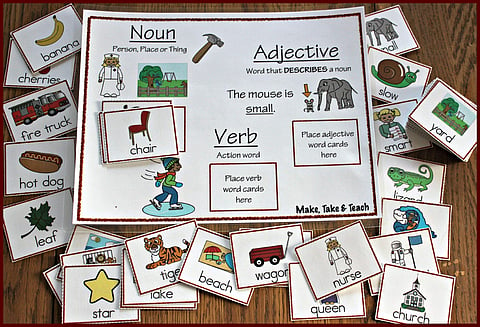

This week’s column discusses two queries. The first query deals with ‘verbing’ or ‘verbifying’ and the second one deals with the difference between the words ‘just’ and ‘only’.
Can the word ‘inconvenience’ be used as a verb? The word ‘inconvenience’ is normally used as a noun but it can also be used as a verb. As a verb it means to cause trouble or difficulty to someone. Many example sentences in which ‘inconvenience’ is used as a verb can be found in the British National Corpus:
* They recognise their needs and ask openly and directly for what they want. If refused, they may feel saddened, disappointed, or inconvenienced, but their self-concept isn’t shattered.
* “I am grateful for what you did last night when I was inconvenienced.”
* Holding parliamentary elections on Maundy Thursday (18 April) may inconvenience Christians.
* It is not fair on your part to inconvenience the employees by asking them to stay back after the regular working hours.
There are many other nouns that can be used as verbs. The act of changing a noun into a verb is called ‘verbing’. Some nouns were used as verbs only in the second half of the twentieth century. It is because some authors and editors started using the English language creatively. Here are examples of such nouns used as verbs: access, author, impact, garden, excuse, thunder and blunder. When someone speaks loudly and angrily, we say that the person thunders. It also means to make a protest against something. When someone blunders, they make a careless or stupid mistake. It also means to move unsteadily and confusedly.
* The employees should know what services are available to them and how to access the services.
* Congratulations on authoring such a wonderful article.
* I don’t know how it will impact your performance.
* How many times should I excuse you?
What is the difference between ‘just’ and ‘only’? The word ‘just’ has different meanings. It is based on the context in which it is used we decode the meaning of it. Let’s look at the different meanings of the word. We use ‘just’ to mean that something happened a short time ago. Examples:
* I just had a meeting with the Director.
* She has just bought a new laptop.
We use ‘just’ when we are doing something now and we are going to complete it soon. We also use the phrases ‘just about to’ and ‘just going to’ when we are going to complete something soon.
* I am just preparing questions for the next test.
* We are just about to reach your place.
We can use ‘just’ to emphasise that something is happening exactly at a particular moment.
* Just as I was about to leave my office, he called me.
I have heard many speakers of English use the word ‘just’ in a very casual way. Does the word have any specific meaning when it is used in a sentence? Look at these examples:
* I just want to know whether it is possible to submit the assignment tomorrow.
* I just came here to wish him on his birthday.
In the two sentences above, even without the word ‘just’ the meaning is clear. The word does not add any meaning to the sentences. What is the difference between ‘just’ and ‘only’?
Consider these sentences:
* I only want to discuss the proposal.
* “Why does she want to meet me?”
In these two sentences, the word ‘only’ implies that the purposes are nothing more than what are mentioned in the sentences. In the first sentence, the purpose is only to discuss the proposal, and in the second sentence, it is to congratulate someone on their success. In spoken English, the word ‘just’ functions like a softener. A softener is something that gives a feeling of comfort.
* Can you just tell me why you want to join us?
When we ask this question to someone, we want to make the person feel comfortable while answering the question.
The question ‘Can you tell me why you want to join us?’ is different in tone from the above question. Tone matters a lot while communicating because ‘tone’ reveals our attitude.
